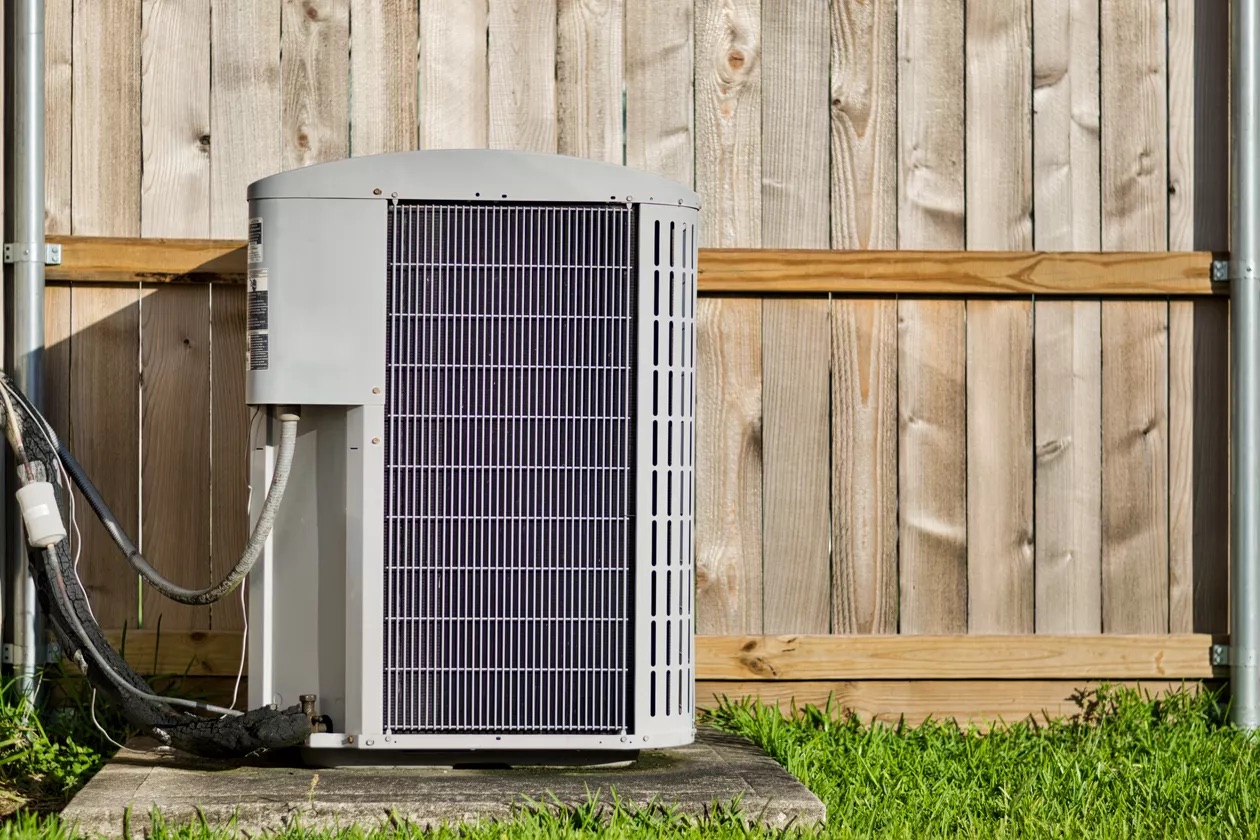

Articles
How To Tell Tonnage Of AC Unit
Modified: October 18, 2024
Learn how to determine the tonnage of your AC unit with these informative articles. Gain valuable insights on AC unit sizing and cooling capacity.
(Many of the links in this article redirect to a specific reviewed product. Your purchase of these products through affiliate links helps to generate commission for Storables.com, at no extra cost. Learn more)
Introduction
When it comes to keeping our homes comfortable during hot summer months, air conditioning is a necessity. But have you ever wondered how the cooling capacity of an air conditioner is measured? This is where the concept of AC tonnage comes into play.
Understanding the tonnage of an AC unit is important as it determines its cooling capacity, which directly affects its efficiency and performance. In simple terms, the tonnage of an air conditioner represents the amount of heat it can remove from a space in one hour. The higher the tonnage, the greater the cooling power.
In this article, we will delve into the world of AC tonnage. We will explore the factors that affect the tonnage of an AC unit and discuss various methods you can use to determine the tonnage of your own air conditioning system.
Key Takeaways:
- Understanding AC tonnage is crucial for efficient cooling. It’s not related to the weight of the unit, but rather its cooling capacity. Consider factors like space size, insulation, and climate when determining tonnage.
- Check the model number or calculate BTU to determine AC tonnage. Consulting an HVAC professional is advisable for accurate assessment. Proper tonnage selection ensures optimal cooling and energy savings.
Read more: How To Tell If AC Is Broken
Understanding AC Tonnage
AC tonnage is a measure of the cooling capacity of an air conditioning system. It is commonly expressed in terms of British Thermal Units (BTU), which is the amount of heat energy required to raise or lower the temperature of one pound of water by one degree Fahrenheit. One ton of cooling is equal to 12,000 BTU per hour.
AC tonnage is not related to the weight of the air conditioning unit itself, as some people mistakenly believe. Instead, it focuses on the unit’s ability to remove heat from a space. The tonnage requirement for a specific area depends on factors like the size of the space, insulation levels, number of windows, local climate, and more.
Factors that Affect AC Tonnage
Several factors come into play when determining the tonnage requirement for an air conditioning system:
- Size of the Space: The larger the space, the higher the tonnage needed to effectively cool it. A small room typically requires a lower tonnage AC unit, while a larger living area or commercial space may need a higher tonnage unit.
- Insulation: Insulation plays a crucial role in maintaining the efficiency of an AC unit. Well-insulated spaces require less tonnage as they retain the cool air better, while poorly-insulated areas may need additional tonnage to compensate for heat gain.
- Number of Windows: Windows allow heat to enter a space, so the more windows there are, the higher the tonnage requirement. Proper shading or energy-efficient windows can help reduce the tonnage needed.
- Local Climate: Areas with high outdoor temperatures will require a higher tonnage AC unit to combat the heat effectively. Humidity levels also play a role in tonnage calculations.
- Occupancy and Equipment: The number of occupants in a space, as well as the presence of heat-generating equipment like computers or kitchen appliances, can influence the tonnage requirement.
Considering these factors will help you determine the appropriate tonnage for your air conditioning system, ensuring optimal performance and comfort.
Key Takeaways:
- Understanding AC tonnage is crucial for efficient cooling. It’s not related to the weight of the unit, but rather its cooling capacity. Consider factors like space size, insulation, and climate when determining tonnage.
- Check the model number or calculate BTU to determine AC tonnage. Consulting an HVAC professional is advisable for accurate assessment. Proper tonnage selection ensures optimal cooling and energy savings.
Read more: How To Tell If AC Is Broken
Understanding AC Tonnage
AC tonnage is a measure of the cooling capacity of an air conditioning system. It is commonly expressed in terms of British Thermal Units (BTU), which is the amount of heat energy required to raise or lower the temperature of one pound of water by one degree Fahrenheit. One ton of cooling is equal to 12,000 BTU per hour.
AC tonnage is not related to the weight of the air conditioning unit itself, as some people mistakenly believe. Instead, it focuses on the unit’s ability to remove heat from a space. The tonnage requirement for a specific area depends on factors like the size of the space, insulation levels, number of windows, local climate, and more.
The cooling capacity of an air conditioning system is represented by its tonnage. One ton of cooling power refers to the amount of heat that can be removed from a space in one hour. The higher the tonnage, the greater the cooling ability of the AC unit.
It is important to understand that AC tonnage is not a direct measurement of weight. Many people mistakenly assume that a higher tonnage AC unit will be heavier. However, the tonnage rating simply indicates the cooling capacity and has no relation to the physical weight of the unit.
In addition, AC tonnage is determined by the BTU rating. BTU is a commonly used unit of measurement for heat energy. It quantifies the amount of thermal energy needed to heat or cool a substance. In the case of air conditioning, BTU measures the cooling capacity by calculating the amount of heat energy that can be removed from a space in one hour.
For example, a one-ton AC unit is capable of removing 12,000 BTU of heat per hour. This means that within one hour, the system can extract 12,000 BTU of thermal energy, effectively cooling the room. Similarly, a two-ton AC unit can remove 24,000 BTU per hour.
To ensure effective cooling, it is crucial to select the appropriate tonnage for your specific needs. If the tonnage is too low, the AC unit may struggle to cool the space adequately. On the other hand, if the tonnage is too high, the unit may cool the room too quickly, resulting in frequent cycling and increased energy consumption.
When choosing the tonnage for your AC unit, consider factors such as the size of the space, insulation levels, number of occupants, and local climate. A professional HVAC technician can help determine the ideal tonnage for your specific requirements.
By understanding AC tonnage and its relationship to cooling capacity, you can make informed decisions when selecting the right air conditioning system for your home or business. Proper tonnage ensures optimal efficiency, energy savings, and comfort during hot summer months.
Factors that Affect AC Tonnage
Several factors come into play when determining the tonnage requirement for an air conditioning system:
- Size of the Space: The size of the space is a crucial factor in determining the required tonnage for an AC unit. Larger spaces will require a higher tonnage to effectively cool the area, while smaller rooms may only need a lower tonnage unit. The square footage and height of the space are considered when calculating the cooling needs.
- Insulation: The insulation level in a space affects the cooling capacity required. Well-insulated areas retain cool air better and prevent outside heat from entering, resulting in a reduced tonnage requirement. In contrast, poorly insulated spaces may need a higher tonnage unit to compensate for heat gain through walls, ceilings, and floors.
- Number of Windows: Windows are a common source of heat gain in a space. The more windows a room has, the higher the tonnage requirement. Sunlight entering through windows can significantly impact the indoor temperature, so it’s essential to consider the number of windows and their exposure to direct sunlight when determining tonnage needs.
- Local Climate: The climate in your region plays a significant role in determining the tonnage required for optimal cooling. Hotter climates with higher temperatures and humidity levels will require a higher tonnage AC unit to effectively cool the space. Conversely, cooler climates may require lower tonnage units due to lower cooling demands.
- Occupancy and Equipment: The number of occupants in a space and the presence of heat-generating equipment can affect the tonnage requirement. The heat produced by people, electronics, and appliances increases the cooling load, necessitating a higher tonnage to maintain the desired temperature.
- Building Orientation: The orientation of the building can impact the tonnage needed. Buildings facing direct sunlight for prolonged periods will experience higher heat gain, requiring a higher tonnage AC unit to counterbalance the heat load.
- Ceiling Height: The height of the ceilings in a space can affect the cooling load. Higher ceilings create more volumetric space that needs to be cooled, requiring a higher tonnage unit for efficient cooling.
- Other Heat Sources: Additional heat sources in the space, such as ovens, stoves, or extensive lighting, can contribute to the cooling load. It’s important to take into account these heat-generating sources and adjust the tonnage requirement accordingly.
Considering these factors when determining the tonnage requirement for your air conditioning system ensures that you select the appropriate unit for efficient cooling and optimal comfort. It is recommended to consult an HVAC professional who can assess your specific needs and provide expert advice on the ideal tonnage for your space.
Read more: How To Tell If Your AC Is Frozen
How to Determine the Tonnage of an AC Unit
If you’re unsure about the tonnage of your air conditioning unit, there are several methods you can use to determine it. Here are three commonly used methods:
Method 1: Check the Model Number
One of the easiest ways to determine the tonnage of an AC unit is to check the model number. Many manufacturers include the tonnage information within the model number itself. Look for a two-digit number within the model number that represents the tonnage. For example, if the model number is ABC12345, a number like 18, 24, or 36 in the middle would indicate an 1.5 ton, 2 ton, or 3 ton unit, respectively. Keep in mind that the numbering conventions can vary among manufacturers, so consult the manufacturer’s documentation for specific details.
Method 2: Calculate the BTU
Another method to determine the tonnage of an AC unit is by calculating the BTU (British Thermal Units) rating. One ton of cooling is equal to 12,000 BTU per hour. So, if you know the BTU rating of your AC unit, you can divide that number by 12,000 to get the tonnage. For example, if your AC unit has a BTU rating of 24,000, dividing it by 12,000 would give you 2 tons. It’s important to note that this method assumes that the unit is operating at full capacity and doesn’t take into account efficiency variations.
Method 3: Consult an HVAC Professional
If you’re still unsure about the tonnage of your AC unit or find it challenging to determine using the previous methods, it’s best to consult a qualified HVAC professional. An HVAC technician will have the expertise and knowledge to accurately determine the tonnage based on factors such as the size of the space, insulation levels, windows, and local climate. They may perform a load calculation to assess your cooling needs and recommend the appropriate tonnage for optimal efficiency and performance.
Remember, selecting the right tonnage for your AC unit is crucial for efficient cooling and energy savings. An undersized unit may struggle to cool the space adequately, while an oversized unit can lead to frequent on-off cycling and increased energy consumption. Consulting an HVAC professional ensures that you choose the right tonnage for your specific requirements, ensuring a comfortable and energy-efficient cooling experience.
Read more: How Much Is An AC Recharge
Method 1: Check the Model Number
One of the simplest ways to determine the tonnage of an air conditioning unit is by checking the model number. Many manufacturers include the tonnage information within the model number itself. By understanding the numbering conventions used by different manufacturers, you can easily identify the tonnage of your AC unit.
Here’s how to decode the tonnage information from the model number:
- Look for a two-digit number within the model number that represents the tonnage.
- The tonnage number is typically found in the middle of the model number.
- Common tonnage numbers include 18, 24, 30, 36, 42, 48, and 60.
For example, let’s say you have an AC unit with a model number like ABC12345. If you notice a number such as 24 in the middle of the model number, it indicates that the unit has a 2-ton cooling capacity. Similarly, if you see 36 in the model number, it represents a 3-ton AC unit.
Keep in mind that the numbering conventions may vary among manufacturers. It’s important to consult the manufacturer’s documentation or website for specific details on decoding the tonnage information within the model number.
If you’re having trouble understanding the model number or can’t find the tonnage information, you can reach out to the manufacturer’s customer support or consult an HVAC professional for assistance. They will be able to help you decipher the model number and determine the tonnage of your AC unit.
Knowing the tonnage of your AC unit is essential as it directly affects its cooling capacity and performance. Selecting the appropriate tonnage ensures efficient and effective cooling, leading to optimal comfort and energy savings. By checking the model number, you can quickly and easily determine the tonnage of your air conditioning unit without the need for complex calculations or professional assistance.
Method 2: Calculate the BTU
Another method to determine the tonnage of an air conditioning unit is by calculating the BTU (British Thermal Unit) rating. BTU is a measure of heat energy, specifically the amount of thermal energy needed to heat or cool a substance. In the case of air conditioning, BTU measures the cooling capacity of the unit.
One ton of cooling is equal to 12,000 BTU per hour. Therefore, you can calculate the tonnage of an AC unit by dividing its BTU rating by 12,000.
Here’s how to calculate the tonnage using the BTU:
- Locate the BTU rating of your air conditioning unit. This information is usually indicated on a label or plate affixed to the unit.
- Divide the BTU rating by 12,000 to get the tonnage of the AC unit.
For example, if your AC unit has a BTU rating of 24,000, dividing it by 12,000 would give you 2 tons. Likewise, if the BTU rating is 36,000, the unit would have a tonnage of 3 tons.
It’s important to note that this method assumes that the AC unit is operating at full capacity and doesn’t take into account efficiency variations. Additionally, some AC units may have BTU ratings that don’t align precisely with standard tonnage increments. In such cases, you can round the calculated tonnage to the nearest standard tonnage value.
If you’re unsure about the BTU rating of your AC unit or need assistance with the calculations, you can refer to the manufacturer’s documentation or consult an HVAC professional. They will have the knowledge and experience to accurately determine the tonnage based on the BTU rating and provide guidance on selecting the appropriate tonnage for your cooling needs.
Calculating the tonnage using the BTU rating is a useful method to estimate the cooling capacity of an air conditioning unit. It enables you to understand the capability of the unit in terms of cooling a specific space and helps ensure you choose the right tonnage for optimal comfort and energy efficiency.
The tonnage of an AC unit can typically be found on the nameplate or label of the unit. It is usually expressed in BTUs per hour, with 12,000 BTUs equaling 1 ton.
Method 3: Consult an HVAC Professional
If you’re unsure about how to determine the tonnage of your air conditioning unit or find it challenging to do so using other methods, it’s advisable to consult a qualified HVAC professional. An HVAC technician has the expertise and knowledge to accurately assess your cooling needs and determine the appropriate tonnage for your specific requirements.
Here’s how an HVAC professional can help:
Load Calculation:
An HVAC professional will perform a load calculation to determine the exact tonnage needed for your space. This calculation takes into account various factors such as the size of the area, insulation levels, window characteristics, local climate, and other unique considerations. By conducting a thorough analysis, the technician can accurately determine the tonnage required to deliver optimal cooling performance and energy efficiency.
Read more: How Does A AC Compressor Work
Expert Advice:
HVAC professionals have in-depth knowledge and experience in the field. They stay updated on the latest industry standards and equipment specifications. By consulting an HVAC technician, you can benefit from their expertise and receive professional advice on the appropriate tonnage for your specific cooling needs. They can guide you on selecting the right tonnage to ensure comfortable indoor temperatures and energy savings.
Equipment Assessment:
An HVAC technician can evaluate your existing air conditioning equipment to determine its tonnage. They will examine the size and capacity of your unit, its cooling performance, and its compatibility with the cooling demands of your space. If necessary, the technician can recommend upgrading or downsizing the equipment to ensure it aligns with your specific tonnage requirements.
Consulting an HVAC professional not only helps you accurately determine the tonnage of your AC unit but also provides assurance that you are making informed decisions about your cooling system. They can guide you through the selection process, taking into account factors such as energy efficiency, cost-effectiveness, and long-term performance.
Remember, selecting the right tonnage for your AC unit is crucial for efficient cooling, optimal comfort, and energy savings. An HVAC professional has the expertise to assess your specific cooling needs and recommend the appropriate tonnage, helping you make the best choices for your home or business.
By seeking professional assistance, you can ensure that your air conditioning system is properly sized and capable of providing reliable and efficient cooling, enhancing your overall indoor comfort and well-being.
Conclusion
Understanding the tonnage of your air conditioning unit is essential for ensuring optimal cooling performance, energy efficiency, and comfort in your space. By considering factors such as the size of the area, insulation levels, number of windows, local climate, and other heat sources, you can determine the appropriate tonnage for your specific cooling needs.
In this article, we explored three methods for determining the tonnage of an AC unit:
Method 1: Checking the model number allows you to identify the tonnage information embedded within the model number itself. Manufacturers often use specific numbering conventions to indicate the tonnage of the unit.
Method 2: Calculating the BTU rating of the AC unit provides a way to estimate the tonnage based on the cooling capacity. By dividing the BTU rating by 12,000 (which represents one ton of cooling), you can derive the tonnage of the unit.
Method 3: Consulting an HVAC professional is highly recommended if you’re uncertain about determining the tonnage on your own. An HVAC technician can perform a load calculation and provide expert advice to accurately assess your cooling needs and determine the appropriate tonnage for your specific space.
By following these methods, you can confidently select the right tonnage for your air conditioning unit, ensuring optimal cooling efficiency and energy savings. An adequately sized AC system will provide consistent and comfortable cooling, while an improperly sized system can lead to inefficiency and higher energy costs.
Remember, it’s important to consult the manufacturer’s documentation or seek professional assistance if you have any doubts or challenges in determining the tonnage of your AC unit. HVAC professionals have the knowledge and expertise to accurately assess your cooling requirements and guide you in selecting the right tonnage for your space.
Properly understanding and determining the tonnage of your AC unit will contribute to a comfortable and enjoyable indoor environment, making those hot summer days more bearable. It will also help to optimize energy usage, lower utility bills, and reduce your carbon footprint.
When it comes to cooling your space effectively and efficiently, selecting the right tonnage for your air conditioning unit is a crucial step. Take the time to assess your cooling needs, consider the factors that affect tonnage, and utilize the methods outlined in this article. By doing so, you can ensure a cool and comfortable environment throughout the summer months.
Frequently Asked Questions about How To Tell Tonnage Of AC Unit
Was this page helpful?
At Storables.com, we guarantee accurate and reliable information. Our content, validated by Expert Board Contributors, is crafted following stringent Editorial Policies. We're committed to providing you with well-researched, expert-backed insights for all your informational needs.
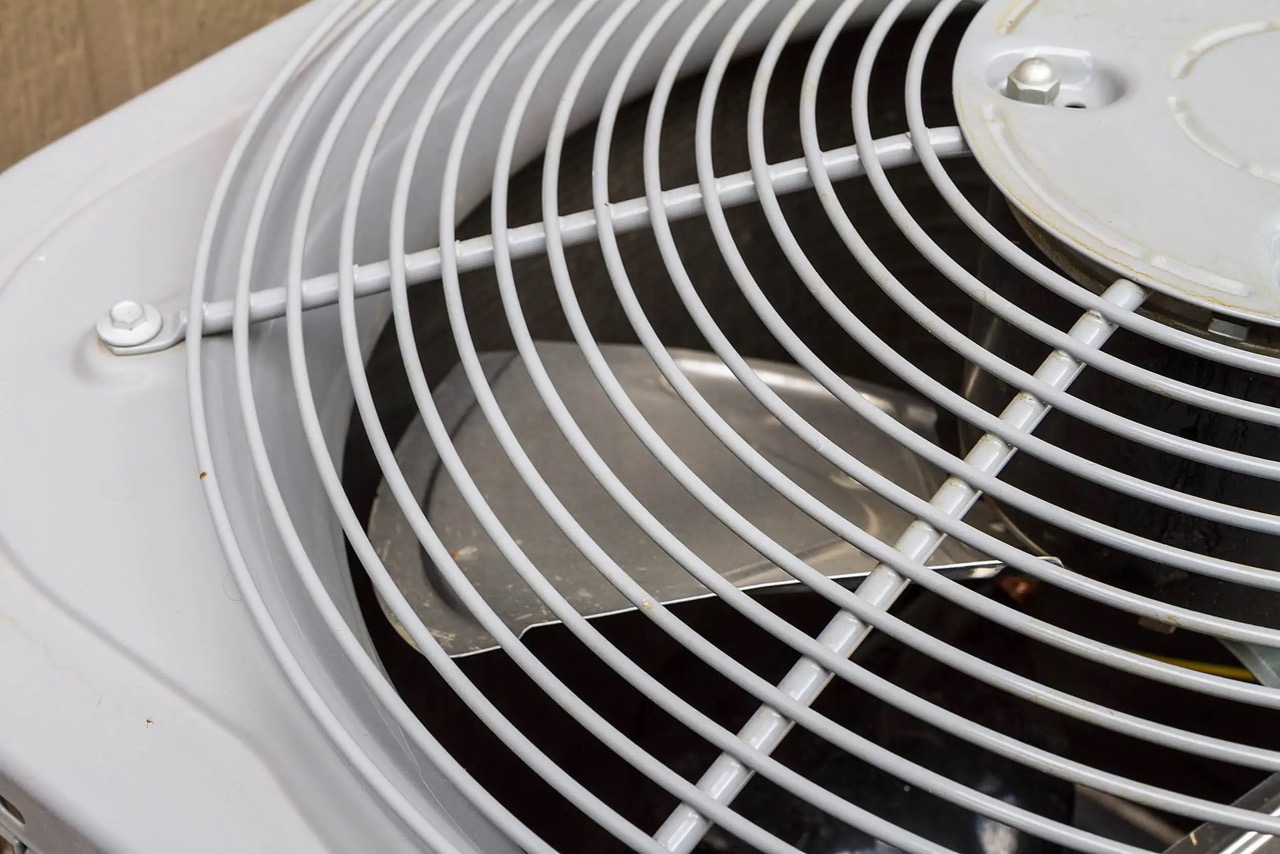

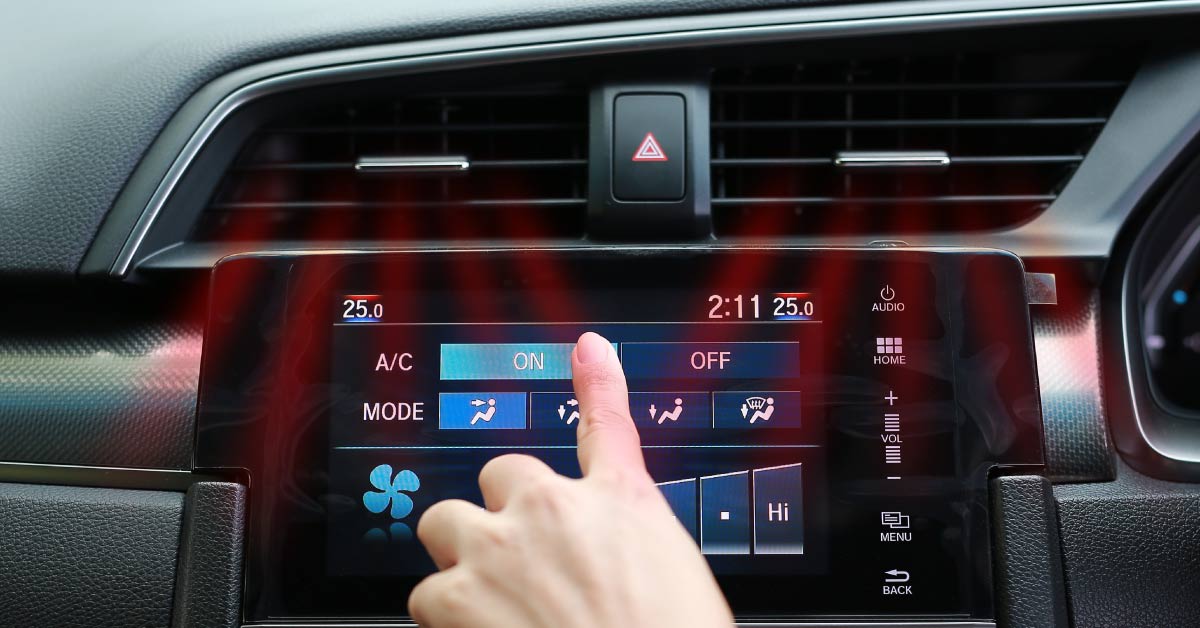
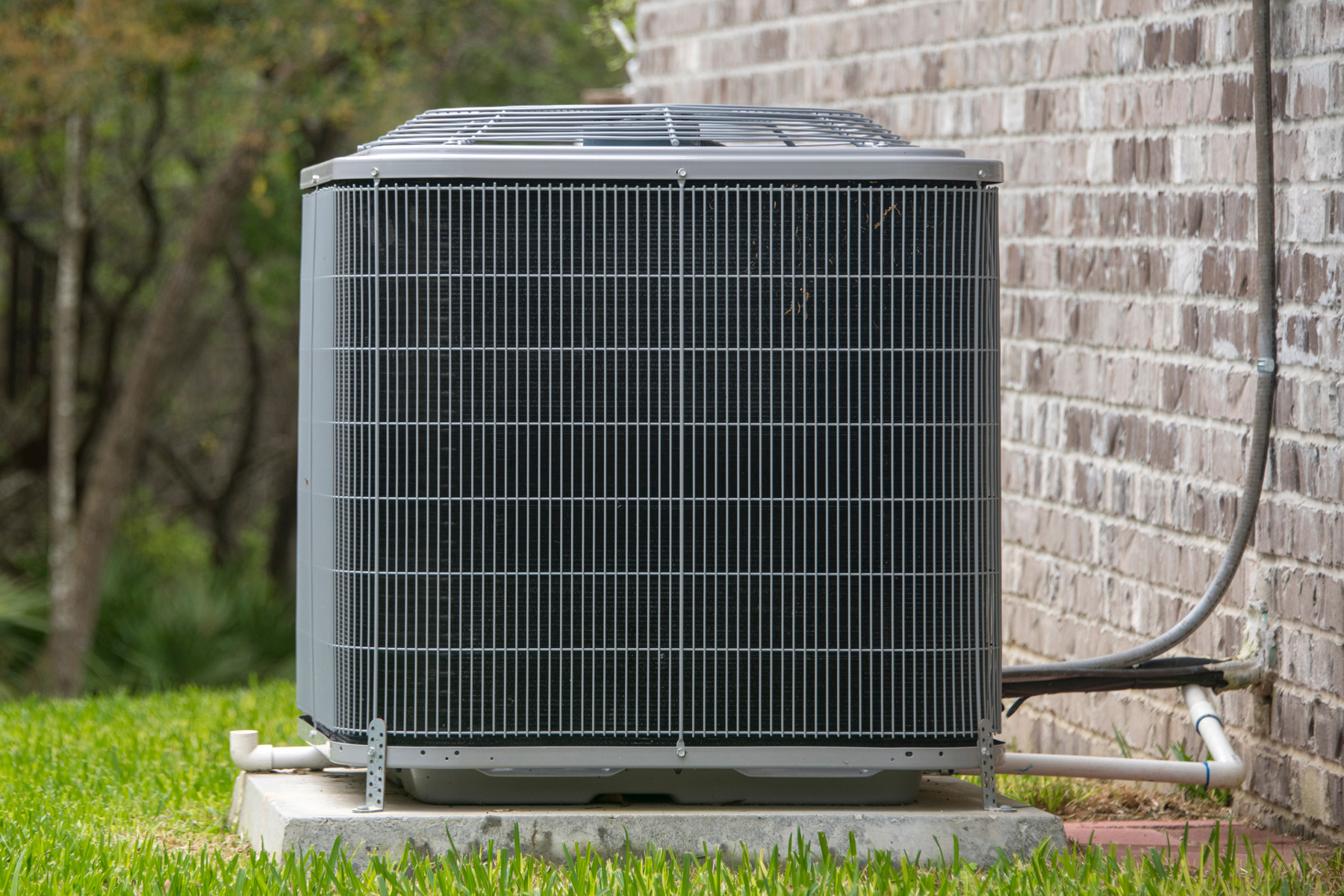


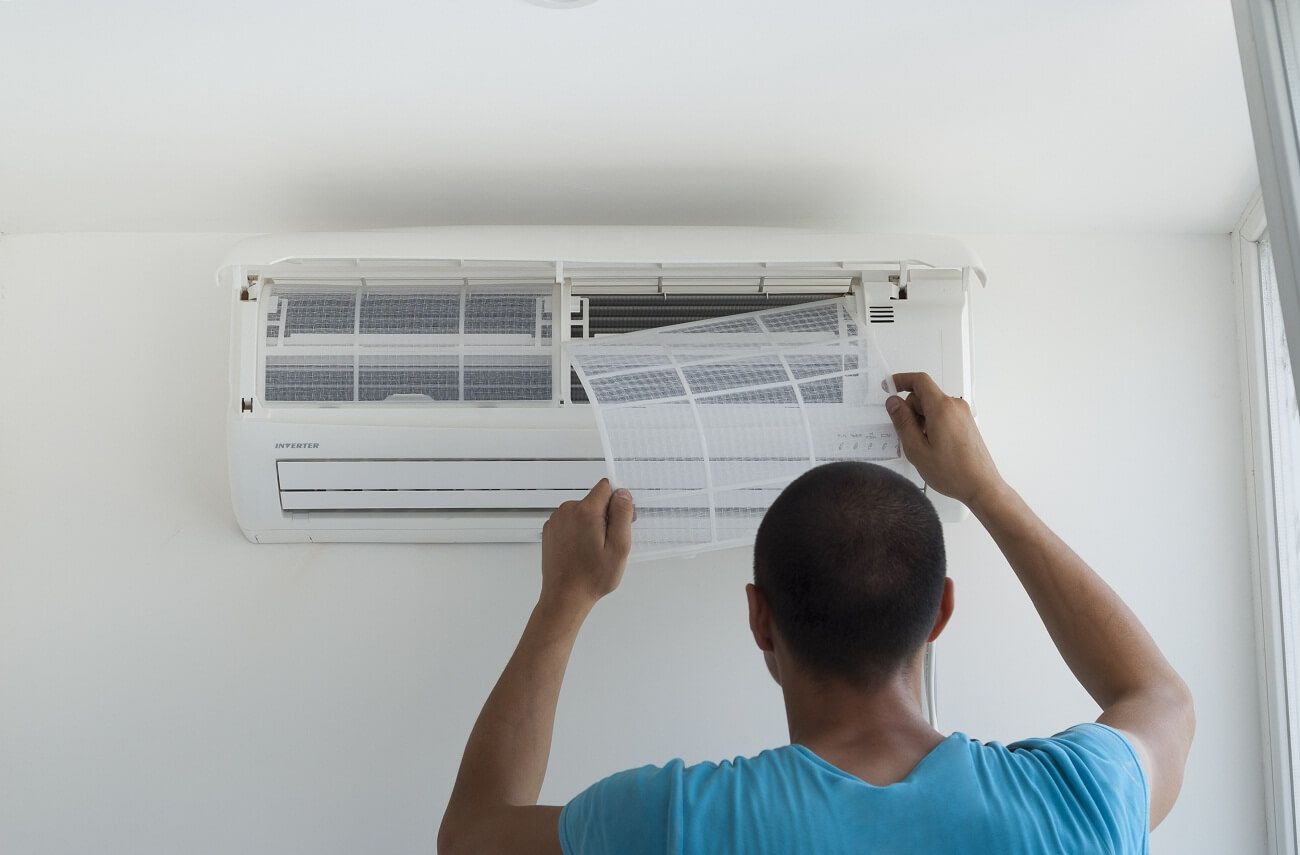
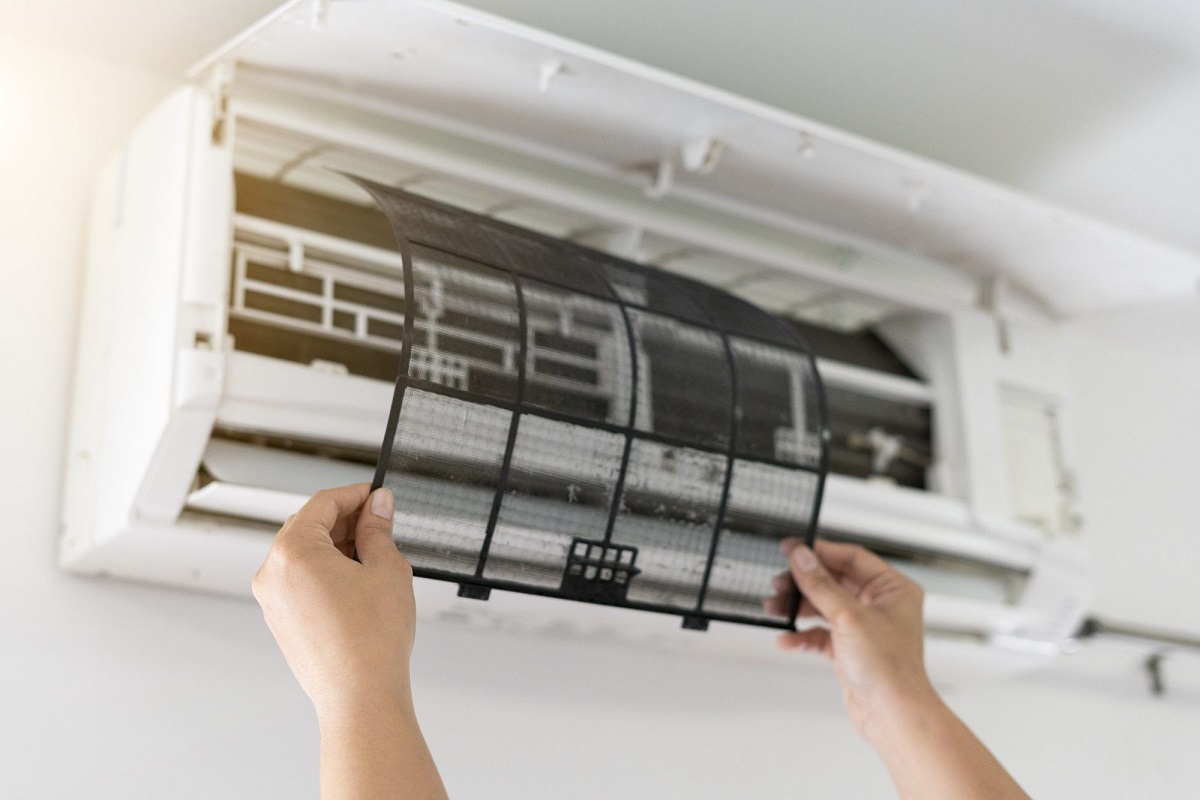

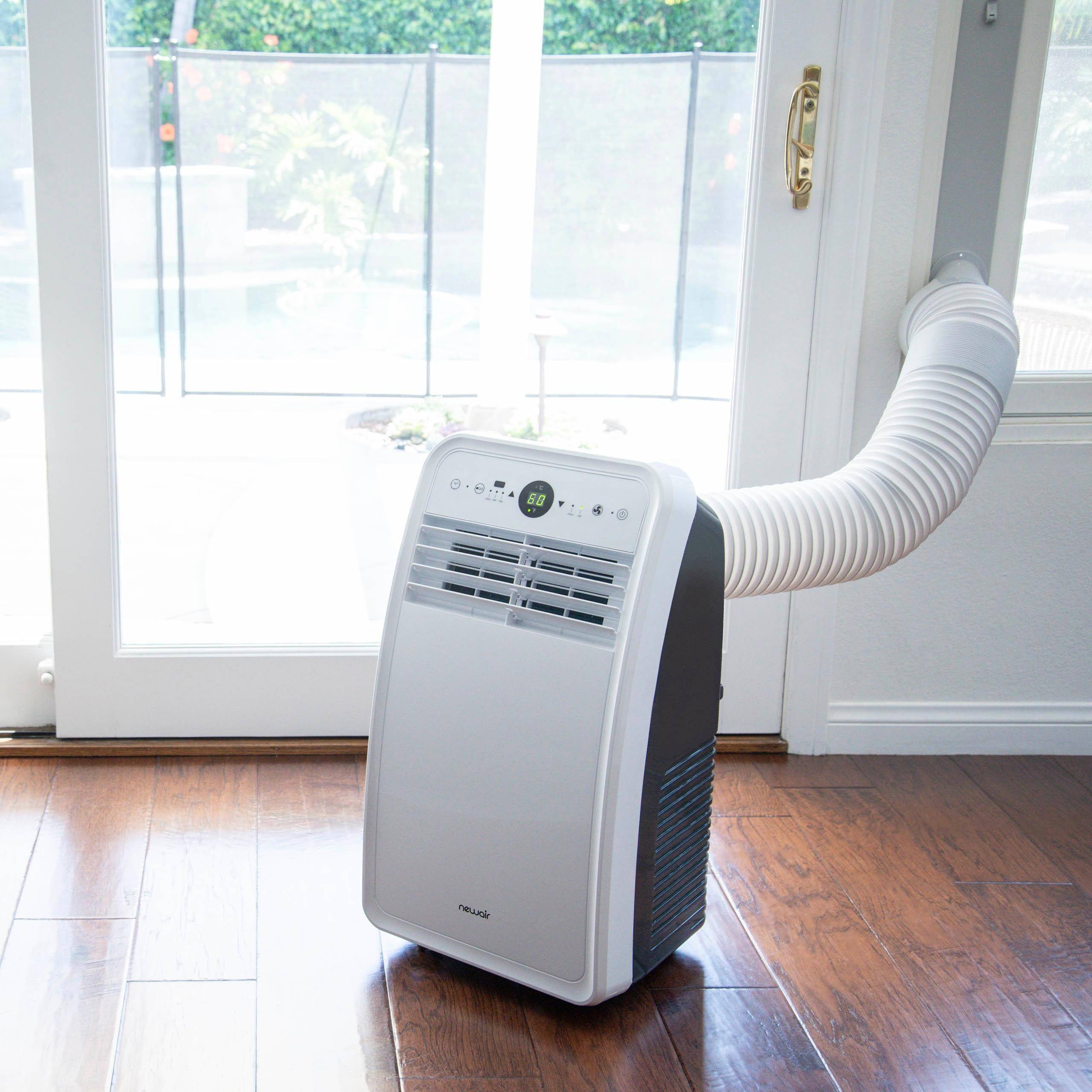



0 thoughts on “How To Tell Tonnage Of AC Unit”